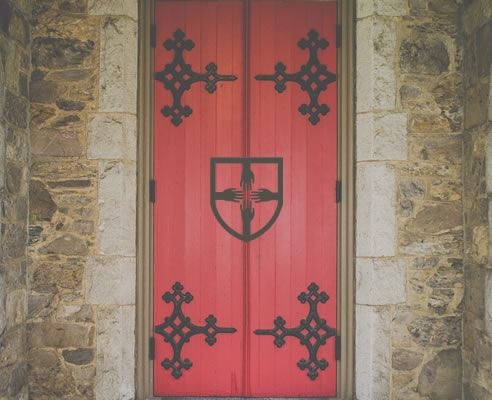“As they entered the tomb, they saw a young man, dressed in a white robe, sitting on the right side; and they were alarmed. But he said to them, ‘Do not be alarmed; you are looking for Jesus of Nazareth, who was crucified. He has been raised; he is not here. Look, there is the place they laid him. But go, tell his disciples and Peter that he is going ahead of you to Galilee; there you will see him, just as he told you.’ So they went out and fled from the tomb, for terror and amazement had seized them; and they said nothing to anyone, for they were afraid.” —The resurrection account in the Gospel of Mark
I attended an Easter vigil for the first time in the mid-1990s, in Minneapolis. It was at a Lutheran church that did everything very well, and very “high”—incense, robust choral tradition, chasuble on the pastor, the works. I found that vigil nothing less than thrilling. The entrance of the ministers in perfect darkness, the growing light of the candles while the cantor sang the Exsultet, the salvation stories read expertly by skilled lectors, and finally the proclamation (with alleluias) of the resurrection, bells ringing, lights flashing on, the organ sounding, the congregation on its feet singing lustily. I wept. The Lord is risen indeed, alleluia.
Over the years I’ve enjoyed the vigil, along with many other festivals of the liturgical year, but I’ve noticed that as I move into my mid-forties, I rarely feel thrilled. This year was no exception. I’m a deacon assigned to a parish that (like my former church in Minnesota) not only enjoys a fine liturgical tradition, but truly empowers people to live out their faith in their daily lives. And yet, when the resurrection is proclaimed, I typically feel a little deflated, a little sad.
Over the years I’ve attributed my mixed feelings to my mother’s untimely death in 1996. But in recent years—and particularly in the last two years, since I got sober—I have sensed that something else is going on. I see many of my friends rejoicing the way I think most church folk do: “Alleluia, Christ is risen!” the priest sings, and they joyfully sing back, “The Lord is risen indeed, alleluia!” and most everyone looks to be having a grand time. But I struggle with it all.
I have a theory about why.
It’s easy to see my sobriety as a kind of resurrection. Don’t worry, I don’t have a messiah complex, but I do hold to the idea that the Resurrection is meant to be something that happens to all of us who die and are raised with Christ in baptism. My sobriety gives me health and strength, and feels like a new life. I am dead to drinking, and alive to a responsible, happier life with better relationships, a new sense of purpose, and even—on a good day—serenity. Nobody gets sober unless there’s an upside. Genuine recovery can’t be tedious or humorless. Mine is full of color, activity, love, and laughter. Like Jesus, who was not raised to return to his old life but instead appeared to his friends in a new way, we also are raised into something new, something better.
But it’s not all songs and flowers and ‘alleluias.’ I recall my first day of sobriety as a painful, wrenching day with many tears, and fear (terror, even) of a kind I had never experienced. I ended the day feeling much calmer, having attended a 12-step meeting and found new friends who welcomed me exactly as I was. But it was a hard day. Like the women in Mark’s Gospel, I was very afraid, and I did not know what would happen next.
One way to understand Mark’s strange, unsatisfying ending is to see ourselves as the people who must write the ending to the Gospel—with our lives. Jesus’ friends were supposed to return to the other disciples and tell them he was raised, but they said nothing, and ran away, afraid. And so it is up to us.
But sober life isn’t always a joyful romp through the Easter garden. I still feel fear from time to time, and still have days when, even though I’m not drinking, I’m doing old behaviors and nursing resentments just like I did before my ‘resurrection.’ I’m told that in recovery we have only a daily reprieve from our illness, which implies that I must be resurrected every day. I feel much better, but it’s rare that I feel the unadulterated joy that swept over me at that long-ago vigil.
And that will have to be okay. Like the first witnesses of the Resurrection, I don’t have all the answers. But I have been raised.
 In the early days of the Church, when the front door of the parish was painted red it was said to signify sanctuary – that the ground beyond these doors was holy, and anyone who entered through them was safe from harm.
In the early days of the Church, when the front door of the parish was painted red it was said to signify sanctuary – that the ground beyond these doors was holy, and anyone who entered through them was safe from harm.